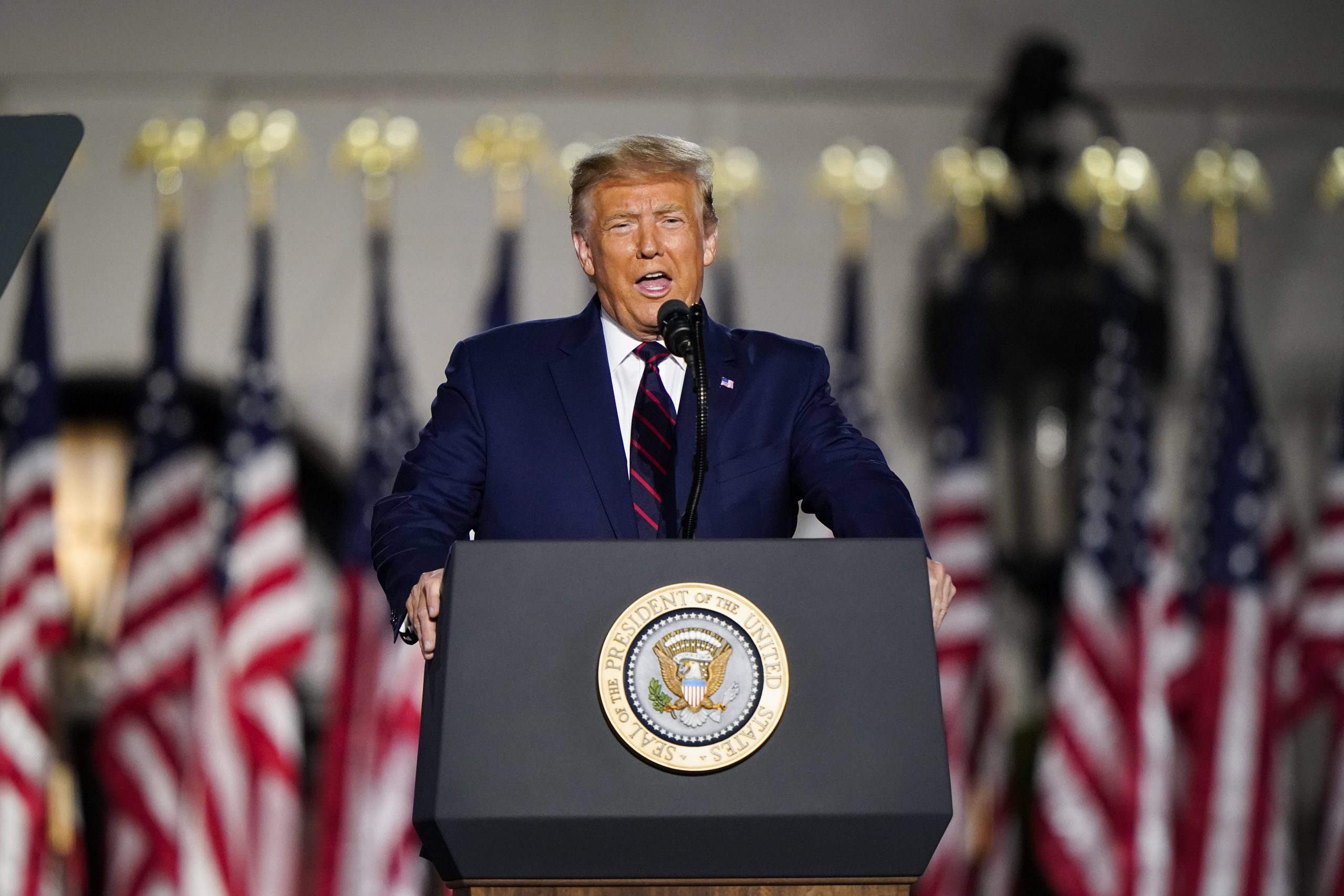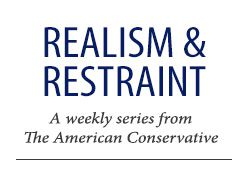Foreign Policy Restraint Was Winning at the RNC

In the Trump era, one thing seriously underreported by the mainstream media has been the massive foreign policy shift occurring on the right. Nowhere was this more apparent than the Republican National Convention.
Here are excerpts from President Trump’s primetime speech, which capped off the convention (emphasis mine):
“Joe Biden spent his entire career outsourcing their dreams and the dreams of American workers, offshoring their jobs, opening their borders and sending their sons and daughters to fight in endless foreign wars, wars that never ended.
“Unlike previous administrations, I have kept America out of new wars, and our troops are coming home.
“We will have strong borders. And I’ve said for years, without borders, we don’t have a country. We don’t have a country. Strike down terrorists who threaten our people and keep America out of endless and costly foreign wars.”
This is a significant shift in rhetoric compared to the American right once stereotyped by neoconservatives. Back in 2015, when most expected Jeb Bush or Marco Rubio to win the Republican nomination to run in 2016, criticism of the Iraq War was restricted to small pockets of the party’s politicians—mainly Sen. Rand Paul. Then, the GOP was widely seen as the ‘pro-war’ party.
The most stunning part of this shift has been the exodus of prominent neoconservatives from the Republican Party, including the many staffers for George W. Bush, John McCain, and Mitt Romney who have endorsed Joe Biden. David Frum, who wrote Bush’s “Axis of Evil” speech in 2002—a significant step toward the Iraq War—is now a prominent Trump critic. The exodus of these Bush-era neocons started as soon as Trump won the nomination, and they have since found an ideological home among the corporate media and embraced by left-leaning institutions..
Though the president’s tone and character is routinely scrutinized, the foreign policy establishment’s opposition has nothing to do with character-issues. The dispute is largely over policy, and over the now-ascendant rhetoric that explicitly rejects neoconservative orthodoxies.
That rhetoric isn’t brand new to the GOP. In many ways, it’s a reversion to a more traditional foreign policy—in the tradition of Eisenhower, Nixon, or Reagan. Congressman Matt Gaetz fits the mold. “President Trump is the first President since Reagan not to start a new war,” said Gaetz during his convention speech. He then decried “decades of war without winning, without end.”
Rand Paul fits in a similar, even more old-school GOP tradition. “A strong America cannot fight endless wars, we must not continue to leave our blood and treasure in Middle East quagmires,” said the non-interventionist Kentucky Senator.
Sure, many GOP interventionists remain, including Nikki Haley, Dan Crenshaw, and Tom Cotton. All three of these politicians—each committed to maintaining and even expanding America’s footprint in the Middle East—have been floated by the Washington establishment and by Republican superdonors as future presidential-ticket material.
It’s also true that this shift in rhetoric hasn’t always seen a policy follow-through. President Trump just announced a significant reduction in U.S. troops in Iraq, but 3,500 troops still remain. U.S. troops also remain in Afghanistan after nearly two decades and little progress on the ground in nearly ten years. And we’re still mired in Syria’s civil war.
But there has been some follow through, aside from troop reductions here and there. Trump, several times, has resisted calls to up the ante with Iran—aside from the time he blew away Iranian general Qassem Soleimani. And he’s resisted calls from neoconservatives to place more troops in combat zones. In fact, the most glaring lack of follow through has been the neoconservatives he has appointed to prominent posts in the administration, including John Bolton, who consistently pushed for him to take greater military action.
The American right has likely shifted permanently on foreign policy, despite the best-efforts by the interventionist wing. That’s because there’s some ideological coherence to Trump’s foreign policy, and it more closely aligns with the desires of grassroots conservatives than with the schemes of the media darling neoconservative pool.
Generally, the Trump Doctrine has two key bedrock principles. First, it seeks to focus on domestic issues over foreign policy issues. Second, geopolitics is seen primarily through the lens of economic competition, not military power, and economic and financial leverage is used instead of boots on the ground.
This is seen in Trump’s approach to Iran: He’s been incredibly hawkish on Iran, but has opted for economic sanctions over military action—again, with the notable exception of the Soleimani strike.
This is also seen in Trump’s approach to China: Where the Washington establishment would like to continue business ties with the Chinese, but up military confrontation, the Trump doctrine views the rise of China primarily through the lens of economic competition. Here, Cotton and many other neoconservatives are hawkish on China, but take a different approach—instead of emphasizing production at home, they wish to build up U.S. bases in the region and boost military ties with China’s neighbors.
Nowhere is the difference between the Bush-era establishment and the Trump Doctrine more clear than in the approach to the Middle East. The Trump doctrine says that it is stupid for America to get bogged down in the Middle East, because that distracts from serious economic and cultural issues here at home, and from the rise of China. Neoconservatives like Cotton and Haley oddly see the Middle East as a vital part of U.S. security. 
None of this is to say Trump’s foreign policy has been entirely coherent, or correct on every front. But there is an ideology behind it, and that ideology is shared by many. Trump’s approval ratings are far higher than George W. Bush’s ratings in his second term, the last Republican president who represented the peak of neoconservatism in the party. The American people also share Trump’s affinity for activism without placing boots on the ground—the public both supported the Soleimani strike, but are also highly skeptical of American boots on foreign soil, especially in the Middle East.
The battle for restraint on the right is clearly not over. But the fact that there is a battle, combined with the exodus of neoconservatives, and the ascendancy of pro-restraint rhetoric provide reason for hope.
Willis L Krumholz is a fellow at Defense Priorities. He holds a JD and MBA degree from the University of St. Thomas, and works in the financial services industry.